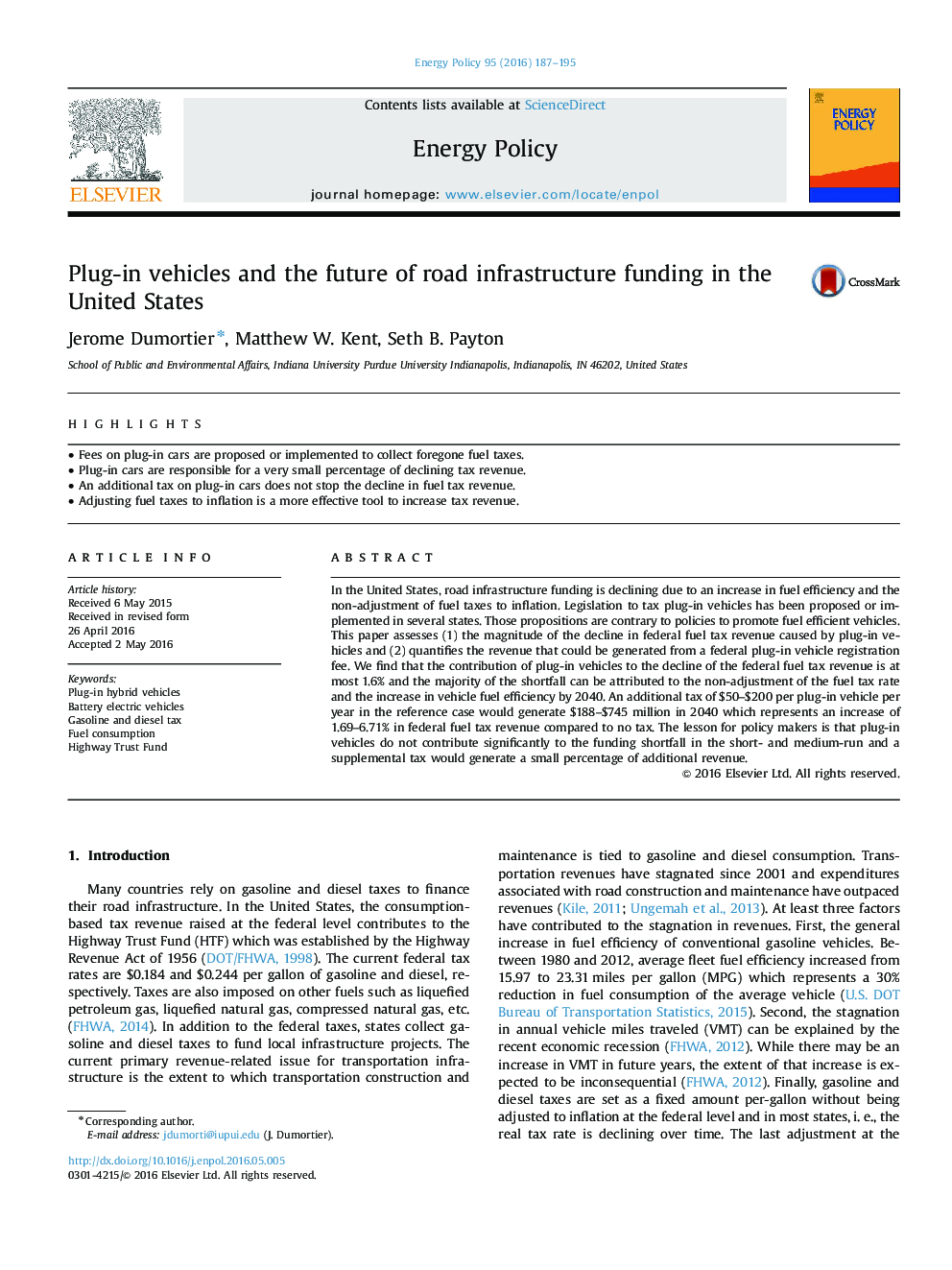| Article ID | Journal | Published Year | Pages | File Type |
|---|---|---|---|---|
| 7399246 | Energy Policy | 2016 | 9 Pages |
Abstract
In the United States, road infrastructure funding is declining due to an increase in fuel efficiency and the non-adjustment of fuel taxes to inflation. Legislation to tax plug-in vehicles has been proposed or implemented in several states. Those propositions are contrary to policies to promote fuel efficient vehicles. This paper assesses (1) the magnitude of the decline in federal fuel tax revenue caused by plug-in vehicles and (2) quantifies the revenue that could be generated from a federal plug-in vehicle registration fee. We find that the contribution of plug-in vehicles to the decline of the federal fuel tax revenue is at most 1.6% and the majority of the shortfall can be attributed to the non-adjustment of the fuel tax rate and the increase in vehicle fuel efficiency by 2040. An additional tax of $50-$200 per plug-in vehicle per year in the reference case would generate $188-$745 million in 2040 which represents an increase of 1.69-6.71% in federal fuel tax revenue compared to no tax. The lesson for policy makers is that plug-in vehicles do not contribute significantly to the funding shortfall in the short- and medium-run and a supplemental tax would generate a small percentage of additional revenue.
Related Topics
Physical Sciences and Engineering
Energy
Energy Engineering and Power Technology
Authors
Jerome Dumortier, Matthew W. Kent, Seth B. Payton,
